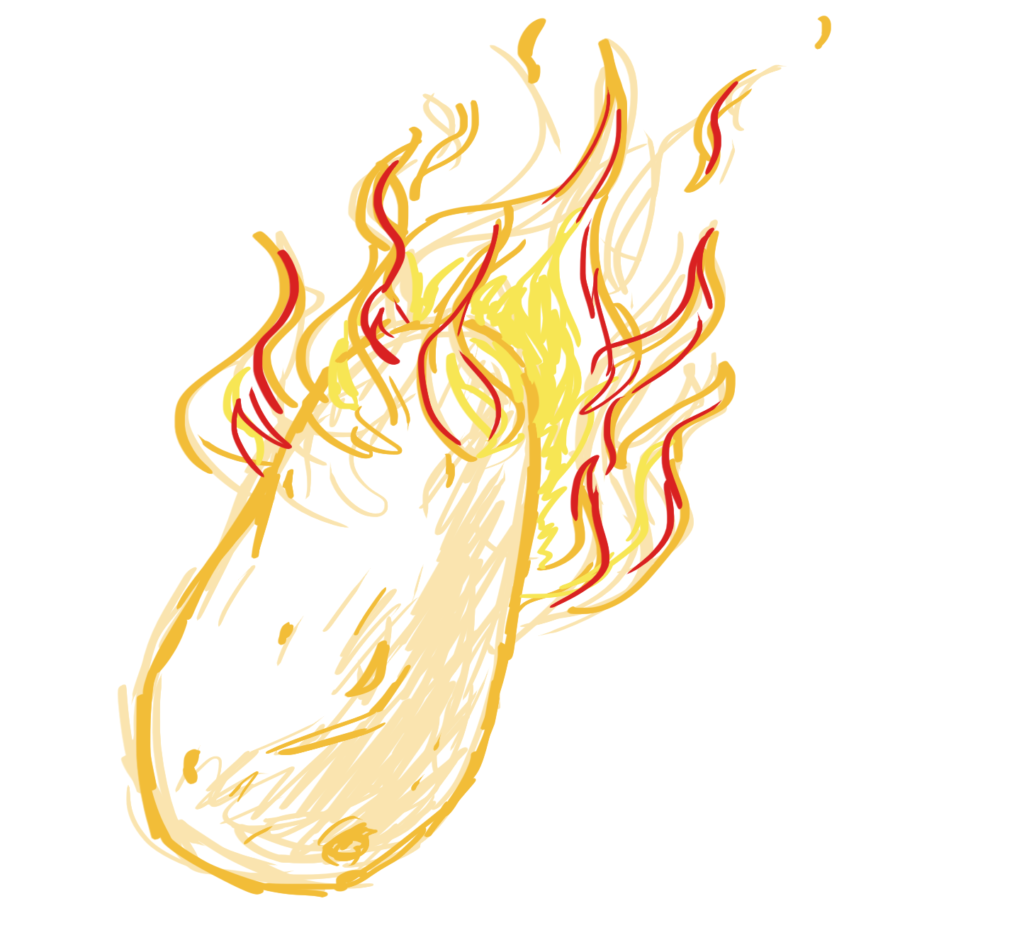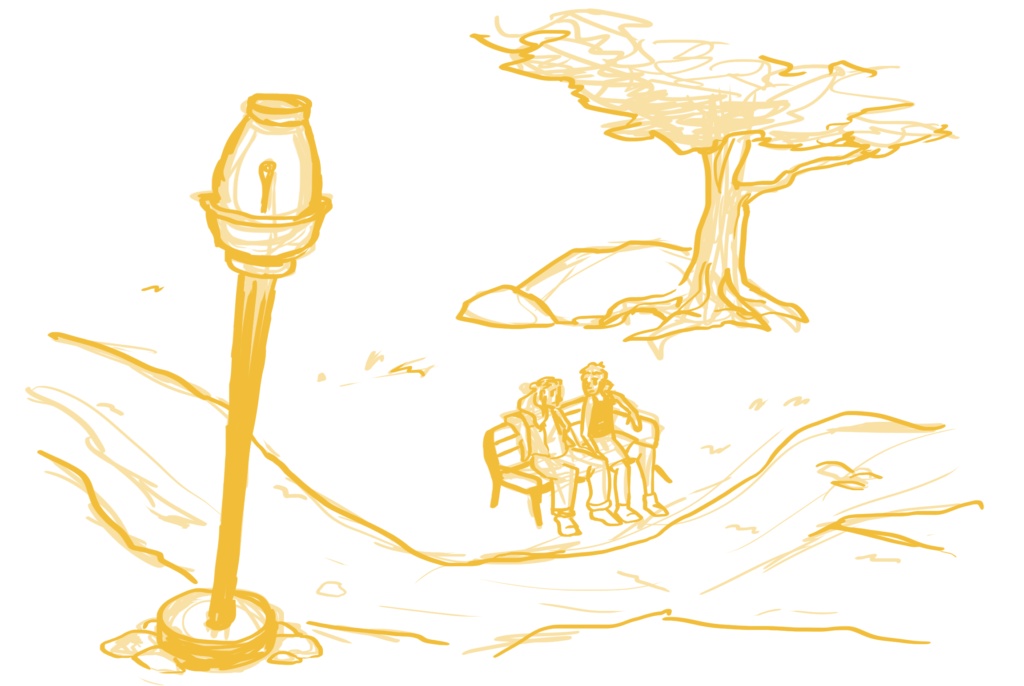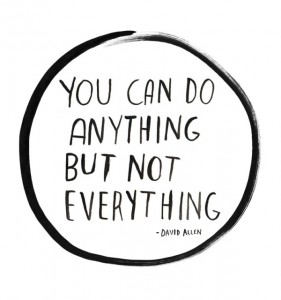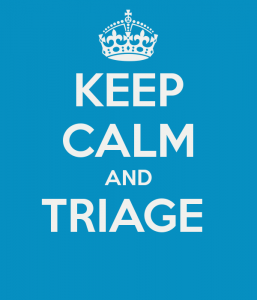Picture this: you’re playing Extreme Hot Potato for the first time.
You’ve never played before. You don’t automatically know what makes it extreme- you just know that you signed up, so now you’re playing. You’re a little nervous, a little excited. You bounce on the balls of your feet; you put your hands up like a baseball star, ready to play.
Suddenly there’s a flaming lump being launched at you.
Your eyes widen in shock. It’s coming fast, but your brain is faster.
As the potato, hurls towards you, you process a few things. The first is that this is the potato you are supposed to catch. It is literally on fire, blackened at this point. Definitely overcooked.
The second is anger, because no one told you the “extreme” part of the game would be literally catching something on fire. You would’ve said no, or worn a catcher’s glove, or waited to say yes until you knew how to approach such a weird, wild concept, or something. There were a dozen ways to have handled it but now, with no way to prepare, you’ll probably end up with a hell of a burn.
But you don’t have time to be angry and, as the air around you gets warmer, you brace yourself for the incoming pain, your hands rigid in front of you, and prepare to catch the fiery starch.
It’s too late to turn back now.

Sometimes that’s life- a game of Extreme Hot Potato, with twists and turns you never saw coming. Adolescent life, especially, can be capricious in all the worst ways. There’s dozens of coming-of-age films and books that’ve been written with the sole purpose of reminding fully-grown taxpayers about just how hard it was, and teaching up-and-coming adults how hard it will likely be. Between trying to balance autonomy with still needing support, learning to take care of yourself, doing schoolwork, making friends, holding a job, financing your education, and classes all at once, sometimes it feels like there’s barely time to breathe. Then, worse than any flaming potatoes, 2020 threw in a global pandemic.
When COVID-19 hit an ill-prepared United States, no one was ready for it. It destroyed peoples’ lives and health, wreaking havoc on the country’s most vulnerable and marginalized citizens. For the people who weren’t dying or struggling with a weakened immune system, it was incredibly isolating.
While not nearly as tragic as the numerous deaths it caused, the pandemic intensified the difficulties of young adulthood. It was disruptive to the college experience, leaving numerous students without housing or resources they thought they would have. A struggle it caused- that I can speak to more accurately- is how lonely it was. Best friends went from being neighbors to only being able to talk from six feet away, if you were lucky enough to live nearby. I was recently talking to my friend about some of the stuff I’d gone through over the pandemic, which had been a wild ride and a half. I’d broken up with my ex, gone through a few different jobs, dated, and tried to make new friends. My friend, one of the closest people to me when I’d been living on campus, only knew the parts of my life I’d shared online. We lamented the distance quarantine had created, the way the intricacies of social connection had been lost to distance. Not being able to be around one another on campus prevented us from being able to support each other as closely. You can’t really lean on someone from states away.
We were a single case study. Research conducted for the Children and Youth Services Review found that the impact of COVID-19 made students in India more “likely to suffer from stress, anxiety, and depression” (“COVID-19 and its impact on…”)) in addition to negatively affecting their scholarly habits. In the United States, the Center for Collegiate Mental Health found that of 43,098 students who sought mental health counseling, 94% reported that at least one part of their life had been negatively impacted by the COVID-19 pandemic (“COVID-19 Impact on College Student Mental Health”). The most affected part of life for the students interviewed, at a resounding 72%, was their mental health; at a barely-lower percentage of 68% were their feelings of isolation. Considering the CCMH report only acknowledges the responses of students who had the resources to seek treatment, it’s safe to assume the pandemic left its mark on the vast majority of us; it changed the course of our college experience.
I haven’t touched on everything else- the difficulties of staying focused in Zoom University, or the way the pandemic prevented students from accessing the facilities or materials necessary to do their work, or the way not everyone had a place to go or a family they could be around safely when it came time to evacuate campuses. Without any need for elaboration, I think it’s clear that all of it, compounded, created a hostile learning environment in an already-tumultuous period of life.
Perhaps the best thing to come from the COVID-19 College Experience was resilience. As someone who stuck through Zoom University, I was able to get a place off-campus, in the same town as my friends from school, and have a semi-normal senior year. Things got better. Proximity allowed me to be closer to my chosen family, to have people around me that I could go to for support, and to have access to my college’s resources. I saw the world start to heal, starting with the little community of Lesley University. For some people, persistence took a different form. Whether it was a gap year or the realization that a traditional college education wasn’t the path for them, the pandemic encouraged people to branch out, finding creative solutions that fit their needs, growing like plants through cracks in the pavement. We all found a way to keep going.

Extreme Hot Potato burns, but you make it out alive.
tl;dr: the only way out is through.
You did it! You survived quarantine and made it all the way through college. You- and your chosen family, made up of a ragtag group of college pals- deserve a sweet treat.
With your student IDs and the help of a Campus Clipper coupon, you can get just that at Pavement Coffeehouse- and all from the comfort of your own home! By using the promo code specified in the advertisement, you can get five dollars off of your first mobile order.
By Ness Curti
Ness Curti is a freshly-graduated illustrator from the Lesley College of Art and Design. A part-time bobarista and full-time New England adventurer, they hope to one day tell stories for a living, whether through art or words. They enjoy doodling, procrastinating, and saying hello to the dogs they pass on the sidewalk.
For over 20 years, the Campus Clipper has been offering awesome student discounts in NYC, from the East Side to Greenwich Village. Along with inspiration, the company offers students a special coupon booklet and the Official Student Guide, which encourages them to discover new places in the city and save money on food, clothing, and services. At the Campus Clipper, not only do we help our interns learn new skills, make money, and create wonderful e-books, we give them a platform to teach others. Check our website for more student savings and watch our YouTube video showing off some of New York City’s finest students during the Welcome Week of 2015.




